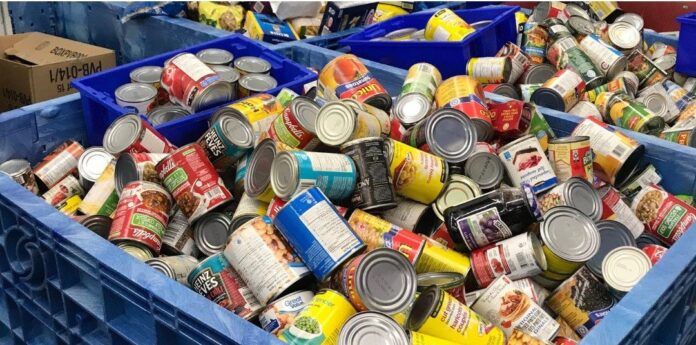While the atmosphere was convivial, the message delivered to participants at a special Caledon Community Services event at its Exchange hub in early December was grim.
“We have tried to avoid the use of the word crisis. But we have started using it,” said Carolyn Stewart, CEO of Feed Ontario, a collective network of hunger-relief organizations.
She was speaking on the key findings and recommendations of its recently released Hunger Report 2023. Subtitled Why Ontarians Can’t Get Ahead, it’s a critical examination on poverty and hunger—its causes and the toll it’s taking on vulnerable residents and the rippling impacts on food banks and other relief organizations.
The agency is calling on the provincial government to address that situation by improving Ontario’s social assistance programs, investing in affordable and supportive housing, making labour law improvements, and promoting the development of quality jobs
A major finding of the report is that more than 800,000 people accessed emergency food support between April 2022 and March 2023, visiting more than 5.9 million times.
That is an increase of 38 per cent and 36 per cent respectively over the previous year. It is the largest single-year increase ever reported by Ontario’s food bank network, said Stewart.
 “A major driver of this extraordinary growth came from people who had never had to rely on a food bank before, with two in five people being first-time visitors, a 41 per cent increase over the previous year.”
“A major driver of this extraordinary growth came from people who had never had to rely on a food bank before, with two in five people being first-time visitors, a 41 per cent increase over the previous year.”
“Ontarians are struggling to get ahead. While we are seeing low unemployment rates across the province, working Ontarians are having trouble earning enough income to afford today’s cost of living.”
The real face of poverty in Ontario belies the stereotype portrayal of Hollywood movies and those perceptions have to be challenged, said Stewart.
“It used to be that having a job meant that you would not have to access a food bank. This is no longer the case. Working Ontarians are having trouble earning enough income to afford today’s cost of living, even when working at multiple jobs or trying to cut expenses.”
The lack of affordable housing continues to be a significant driver of food bank use, as is inadequate social assistance programs.
Workers are turning to food banks in ever-greater numbers; with more than one in six visitors continue to be a longstanding driver of food bank use. And that is having a detrimental impact.
“Food banks are continuing to work incredibly hard, but they are struggling to keep up,” said Stewart.
As the need in Ontario communities to grow, it is outpacing food banks’ food and financial resources, with some reducing service and some facing possible closure.
“No community has escaped unscathed. Something is very wrong at the community and provincial level,” said Stewart, emphasizing the report’s thrust that food banks are not a solution to food insecurity and poverty. They were never intended to be a long-term solution or to fill gaps created by income insecurity and decreased affordability.
“Only good public policies that ensure adequate access to income and affordability are able to create meaningful change,” said Stewart, addressing some of the report’s key recommendations, especially the ones urging needed social assistance reforms.
Focusing on a section of the report titled ‘Legislated Poverty’, she said that social assistance remains the primary source of income for the majority of food bank users, with 26 per cent relying on Ontario Works and 28 per cent relying on Ontario Disability Support Program. And yet, those recipients are confronted with a series of social assistance clawbacks.
After Stewart’s talk, the audience divided into groups to tryout a new online program Feed Ontario has created in tandem with the Hunger Report. The interactive ‘Fork in the Road’ interactive tool guides users through some of the difficult decisions low-income families face each month.
That portion of the meeting was coordinated by CCS’s director of community resources, Michelle Veinot, who suggested the audience should leave the meeting “a little bit angry” over what they had learned.
Approximately 30 people representing organizations such as Peel Region, United Way Greater Toronto, local faith leaders, Caledon Meals on Wheels, and the Town of Caledon attended.
The dire situation across the province as presented in the report can be seen in Caledon, where poverty may often be will hidden, says CCS marketing and communications manager Donna Cragg.
Caledon Community Services is asking Caledon residents to donate to its annual Season of Hope campaign. https://ccs4u.org/donate/season-of-hope
The post The Hunger Report 2023: Food Bank Use at Record-Highs appeared first on Just Sayin’ Caledon.


